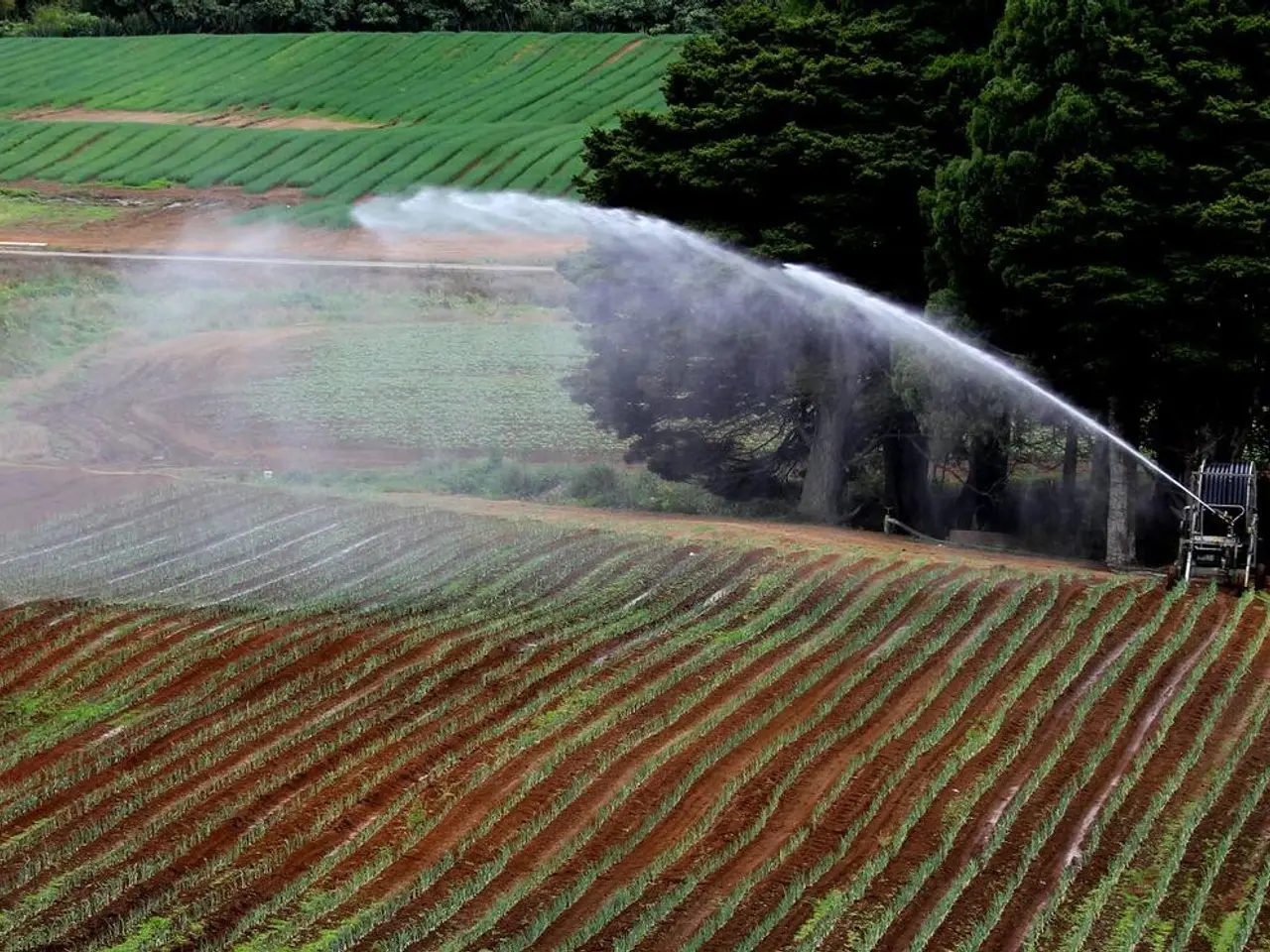Advantages of Agroecological Methods for Small-scale Agriculturists
=========================================================================
Small-scale farmers across the globe are reaping the benefits of adopting agroecological practices. These farming methods, which focus on working with nature and promoting biodiversity and sustainability, offer a multitude of advantages.
- Improvement of Soil Health
Agroecological practices such as agroforestry, cover cropping, and the use of organic fertilizers help increase soil fertility and structure. These methods promote nutrient cycling and organic matter buildup, reduce soil erosion, and improve water retention. By avoiding synthetic chemicals, agroecology fosters biodiversity and restores natural soil ecosystems, making soil more resilient to climate stresses such as drought and floods [3][4].
- Cost Savings
Small-scale farmers benefit economically by cutting expenses on costly industrial inputs like synthetic fertilizers, pesticides, and commercial seeds. Agroecology encourages the use of traditional, indigenous seeds and natural fertilizers, which are cheaper and can be preserved and passed down through generations, reducing dependency on expensive industrial resources [3][4]. Reduced need for chemical inputs lowers operational costs directly.
- Promotion of Sustainability
Agroecological farming balances productivity with environmental care, thus fostering long-term sustainability. It mitigates pollution, sustains biodiversity, conserves water, and enhances carbon sequestration, contributing to climate resilience [4]. These methods also improve food security and nutrition through crop diversity. Additionally, small-scale farmers adopting agroecology often find better market opportunities due to growing consumer demand for sustainable and chemical-free products [2][4].
- Broader Socioeconomic Benefits
Agroecology strengthens local economies by encouraging entrepreneurship and job creation within communities. Small farms often become innovation hubs, experimenting with adaptive practices like improved irrigation or integrated pest management, which further promotes sustainable farming systems and economic equity for marginalized farmers [1][5].
In summary, agroecological practices improve soil health by restoring natural fertility and enhancing resilience; they save costs by reducing reliance on expensive chemical inputs and industrial seeds; and they promote sustainability by creating environmentally sound, economically viable farming systems that support food security, biodiversity, and local economies [1][2][3][4][5].
Some additional benefits include:
- Healthy soil retains moisture better, providing resilience during dry spells.
- Farmers' markets and local co-ops often favor sustainable practices, providing opportunities to sell directly to consumers.
- Traditional knowledge and local resources help farmers adapt to changing conditions without incurring high costs.
- Premium prices can be earned for organic and sustainably grown produce.
- Diverse crops can withstand pests and diseases better, providing resilience through agroecological practices.
- Agroecological practices provide economic resilience by making farms less vulnerable to pests and diseases.
Agroecological practices are farming methods that focus on working with nature and promoting biodiversity and sustainability. By adopting these practices, small-scale farmers can reap the benefits of improved soil health, cost savings, and enhanced sustainability, ultimately leading to a more resilient and sustainable agricultural system.
- Agroecology not only encourages environmental-science in farming but also contributes to health-and-wellness, promoting nutrient-rich vegetables and improved food security.
- Embracing agroecological practices in the home-and-garden leads to a more sustainable lifestyle, reducing one's carbon footprint and contributing to personal-growth by making a positive impact on the environment.
- Agroecology's environmental-science aspect attracts finance from socially responsible investment funds, supporting the business of small-scale farming and personal-finance for farmers through grants and loans.
- Technology plays a significant role in agroecology, with precision agriculture tools and data analysis helping farming become more efficient and productive.
- The focus on sustainability in agroecology aligns with the values of the education-and-self-development sector, promoting learning about ecological systems and fostering personal-growth through environmentally conscious choices.
- Agroecology is beneficial for fitness-and-exercise enthusiasts interested in health-and-wellness, as it encourages the consumption of organic, nutrient-rich foods and supports a lifestyle that cares for both personal and global health.
- Agroecology benefits relationships, as consumers develop stronger connections with farmers who use sustainable practices, and communities collaborate to support local agriculture.
- In the realm of sports, athletes can contribute to sustainability by choosing vegetarian or flexitarian diets, supporting local farming communities and promoting agroecological practices.
- The sports industry, aware of its environmental impact, can leverage agroecological practices in stadiums and event venues, incorporating edible landscapes and sustainable food vendors.
- The weather plays a crucial role in agroecology, as extreme weather events can threaten the success of agroecological farms, underscoring the importance of climate change awareness and mitigation.
- With informed decisions regarding personal-finance, food-and-drink choices, and lifestyle, individuals can support the growth and uptake of agroecological practices, contributing to a more sustainable and resilient future for our planet and generations to come.




